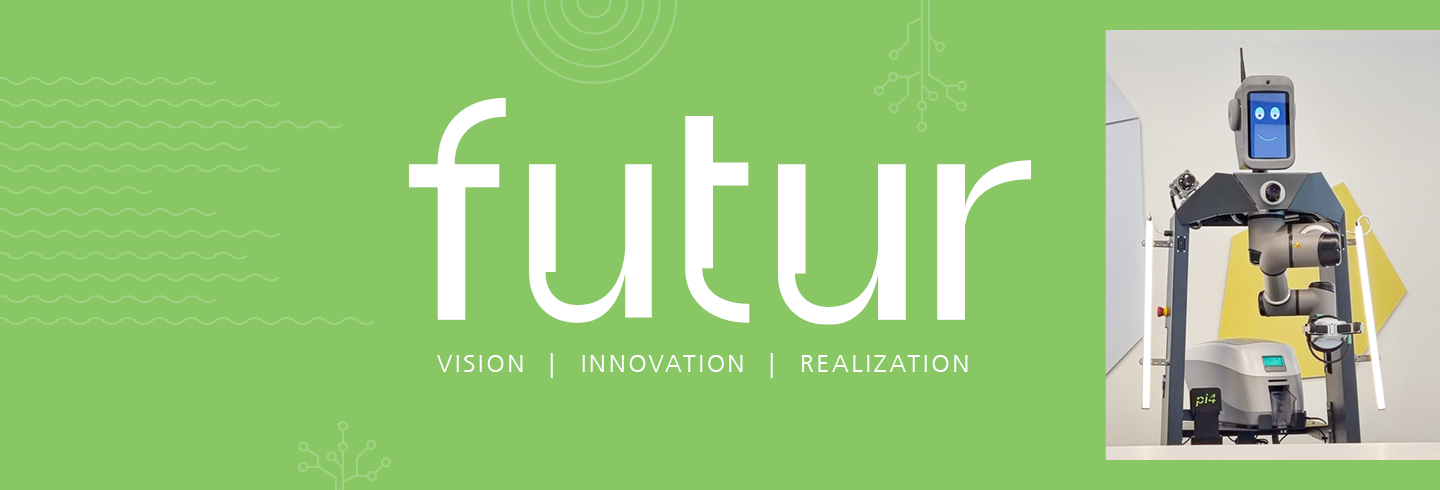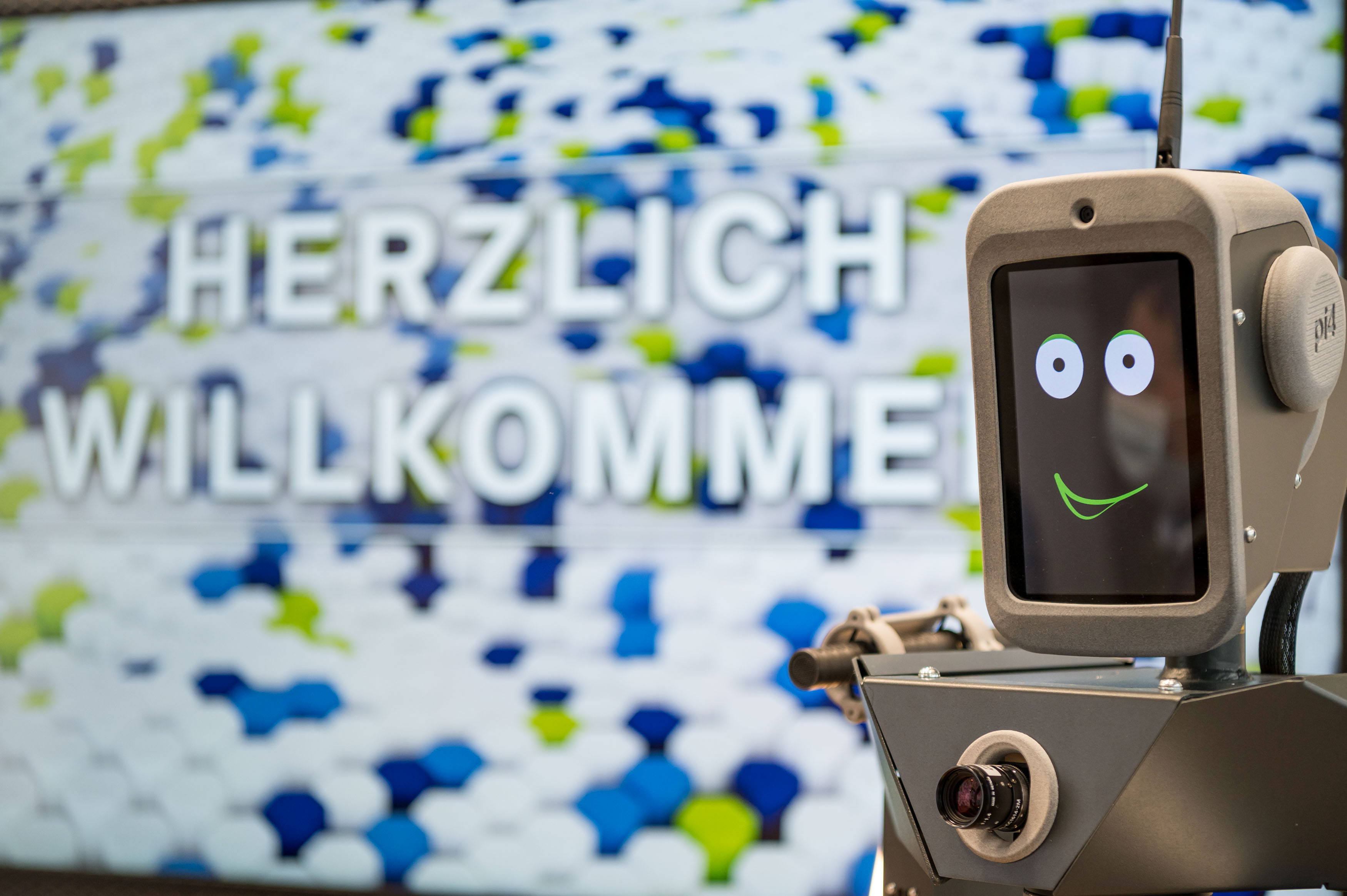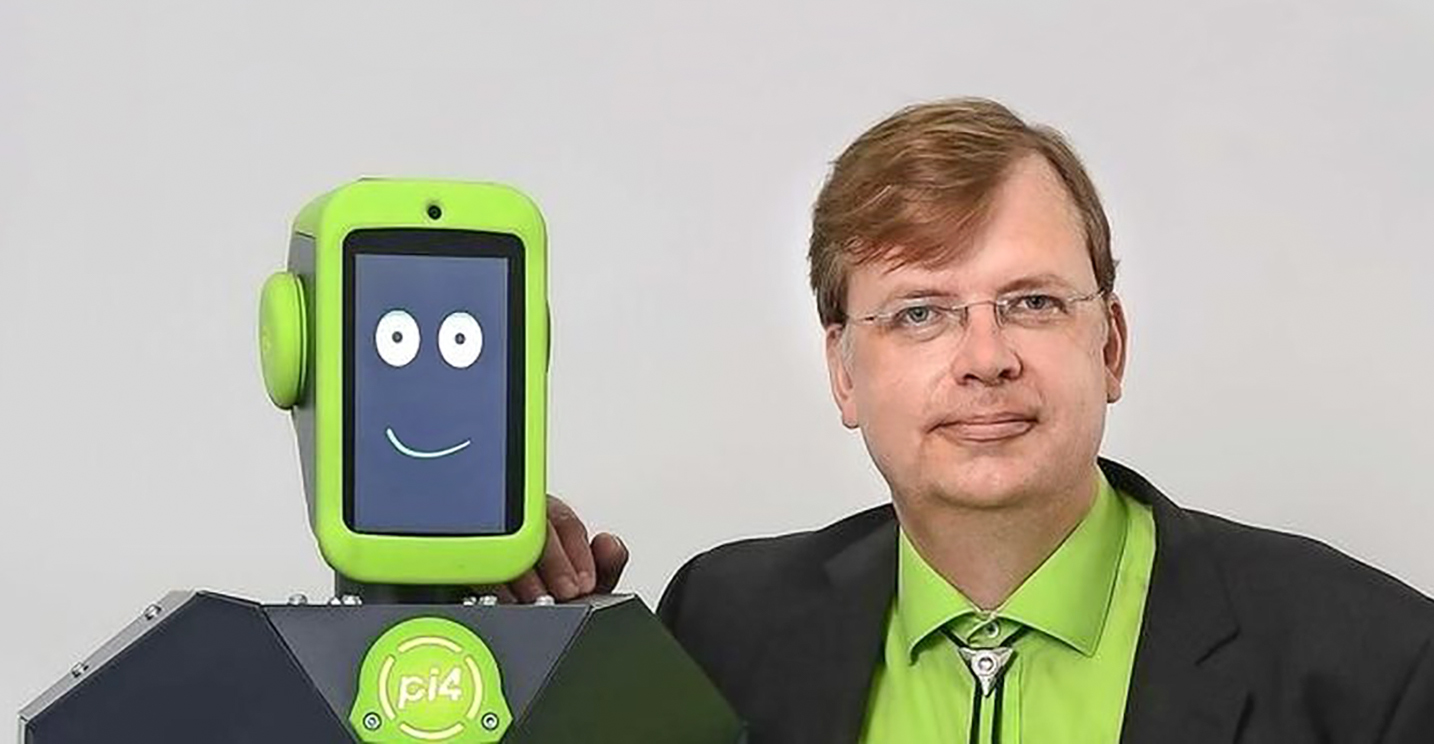Interview with Matthias Krinke, pi4_robotics GmbH
»Workerbot 1« was the name of the first robot developed by the Berlinbased company pi4_robotics in 2010. Today, the 8th generation of Workerbots support industrial companies in handling, assembly and inspection, but the humanoid helpers are also used for building monitoring, concierge services, catering or the care sector. Founder and CEO Matthias Krinke explains in this interview with FUTUR that good technology needs emotions – especially when humans and machines work together.

futur: Mr. Krinke, your company pi4_robotics is particularly known for its service robots with their friendly smiles. The Workerbot4 Concierge, for example, can receive, brief and inform guests. How important is a humanoid design for robots that are in direct interaction with people?
Krinke:
Just as a person smiling at you in a friendly way can have a positive impact on your day, the same is true for robots. Think of an ATM, for example: Here, service is usually handled in a simple, straightforward, but also unemotional fashion. Some companies already use check-in machines to welcome guests. But how does a visitor feel when they are received in such a functional and emotionless way? Even if friendliness is only programmed in our robots, it leaves a pleasant feeling. And why should a service only be designed functionally, if it can also be realized in an emotionally appealing way? If this friendliness is linked to a humanoid figure, robots appear more convincing and are better accepted by a human counterpart than a smiley that simply appears on the screen of an ATM.
futur: In addition to customer service, your Workerbots are also used in industrial production. As a manufacturer, what differences in the interaction between robots and humans do you have to consider for these different applications, for example in terms of design and operability?
Krinke:
Stationary and mobile robots for assembly and logistics tasks in factories are operated by technically trained personnel. The staff generally interact with them without reservation and set parameters themselves. Design aspects play less of a role here than technical functionalities. In non-industrial applications, on the other hand, a sympathetic design of robots is of greater importance. Here, the focus is on self-explanatory operation that is as language-independent as possible. In our latest product development – a service robot that assists in nursing care – we therefore put a great deal of effort into the design, especially the interface design. In this context, we are also investigating trust-building properties of robots and considering ethical issues and data protection requirements. Implementing such aspects functionally and in terms of design is enormously important, especially in the care sector.
futur: For an SME, pi4_robotics is exceptionally strong in research. This has been recognized e. g. by the magazine »Capital«, when it gave you an award as one of the most innovative companies in Germany 2021 in the field of mechanical and plant engineering and suppliers. Which of your developments make you particularly proud?
Krinke:
Each of our developments had and has its challenges for us as a team. It is difficult for me to single out one of them. As a mechanical engineering company, we compete not only throughout Germany but also internationally and can only maintain our market position with the most innovative technology. With this in mind, we at pi4 always try to be at the forefront of technology. However, technology must not be an end in itself, but should always be at the service of the environment and our quality of life. I am particularly proud of the fact that we build very durable machines and robots. Most of the systems we have produced over the past 28 years are still in service today. I am also proud that our technology supports the use of renewable energies and thus helps to ensure the survival of our planet. For example, we develop fully automated inspection systems that are used for quality control of solar cells, fuel cell components and electrolysers. In addition, our diagnostic robots help to detect rare diseases such as ALS at an early stage so that patients can get optimal treatment.
 Fraunhofer Institute for Production Systems and Design Technology
Fraunhofer Institute for Production Systems and Design Technology

